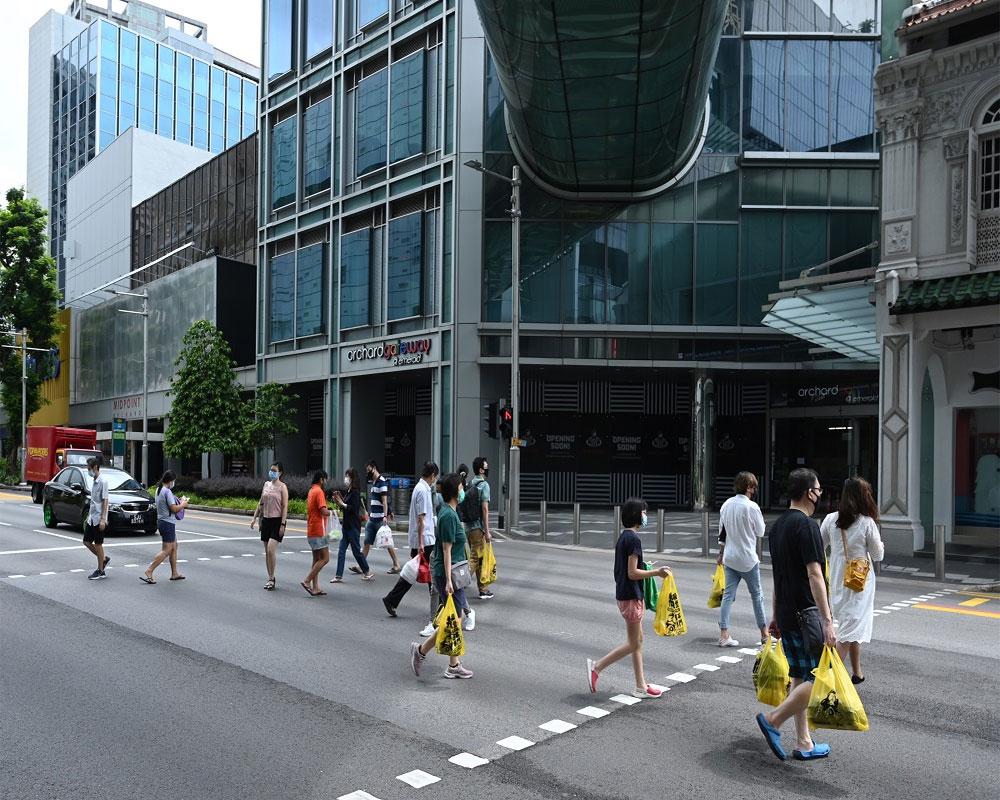Singapore reported 83 new COVID-19 infections on Friday, including four imported cases, taking the country's tally to 55,580, according to the health ministry.
The four imported cases have been placed under Stay-Home Notice (SHN) on arrival here. There was no case from the community for the first time since June 1, said the Ministry of Health (MOH).
A vast majority of the new infections are work permit holders currently under quarantine, the ministry said in its preliminary daily update.
Four of the six imported cases were seamen who arrived here from India on August 8 on a vessel. The four persons, who are special pass holders, have been hospitalised.
The other two are Singaporeans who returned from the Philippines on August 11 and from the UAE on August 1. Both had been placed on 14-day Stay-Home Notice (SHN) upon arrival in Singapore.
There are currently 91 confirmed cases who are still in hospital while 4,643 are isolated and cared for at community facilities for mild symptoms, or are clinically well but still test positive for COVID-19.
In all, 50,736 have fully recovered from the infection and have been discharged from hospitals or community care facilities. These included 216 discharged from hospital on Thursday, the ministry said.
Meanwhile, about one in six foreign workers living in dormitories contracted COVID-19, a calculation based on Singapore's official tally showed, but the true infection rate in the dormitories lodging foreign workers is likely to be higher than this, experts say.
If accurate, however, an infection rate of one in six would not be enough for herd immunity to develop in the migrant worker population, The Straits Times reported, citing the experts.
A total of 52,425 out of 323,000 foreign workers had been infected as of Wednesday.
Professor Teo Yik Ying, dean of the Saw Swee Hock School of Public Health, said that given that most infected foreign workers are asymptomatic or mildly symptomatic, and belong to a generally young and healthy demographic, it is even more likely that some of these infected patients do not know that they had the virus, resulting in under-reporting of dormitory cases.
Professor Teo said an added complication is that there is also no clear evidence to support the hypothesis that immunity would provide lasting protection against the virus.
"There is some evidence to suggest some degree of immunity is conferred for at least three months after being infected, but beyond that, I don't think we know enough to set any policy that will be completely reliant on assumptions about post-infection immunity," the report quoted Teo as saying.
Traditionally, herd immunity has been one of the ways to protect populations against infections. It can be achieved through exposure to and infection by the virus, or through vaccination, the professor explained.
"The reality is that we will not achieve herd immunity in the next three months, and what this means is that countries will need to continue to invest in all the necessary measures to ensure that the people are protected from the virus, while allowing them to continue living with as near a degree of normalcy as possible," Teo said.


























